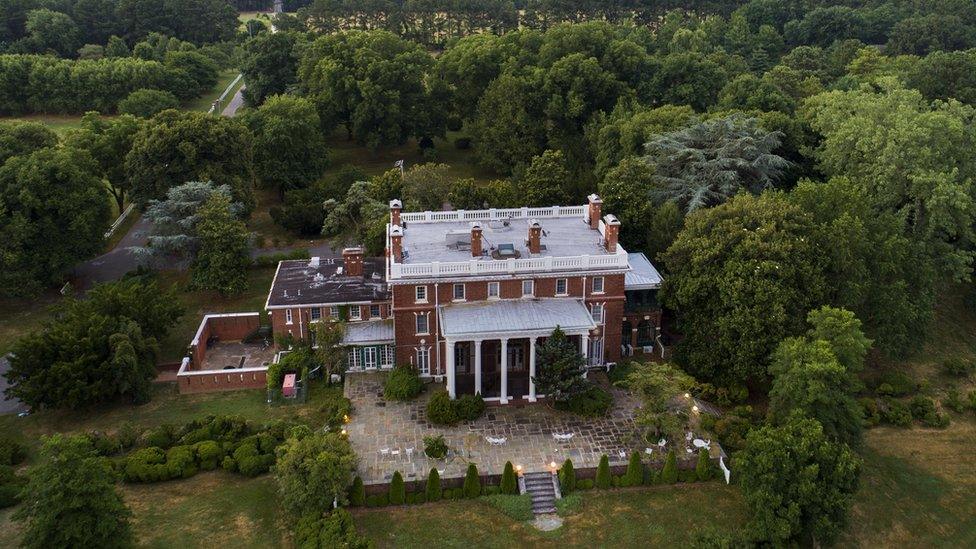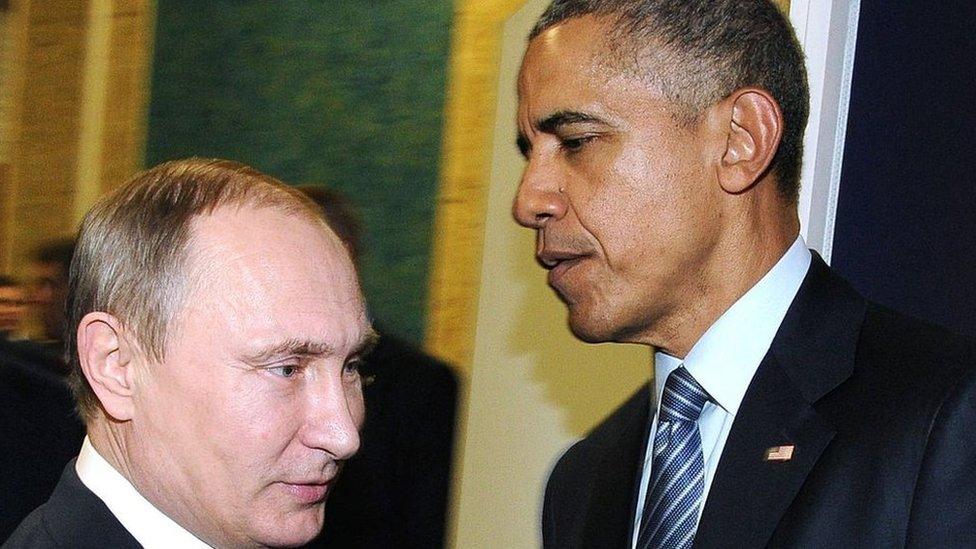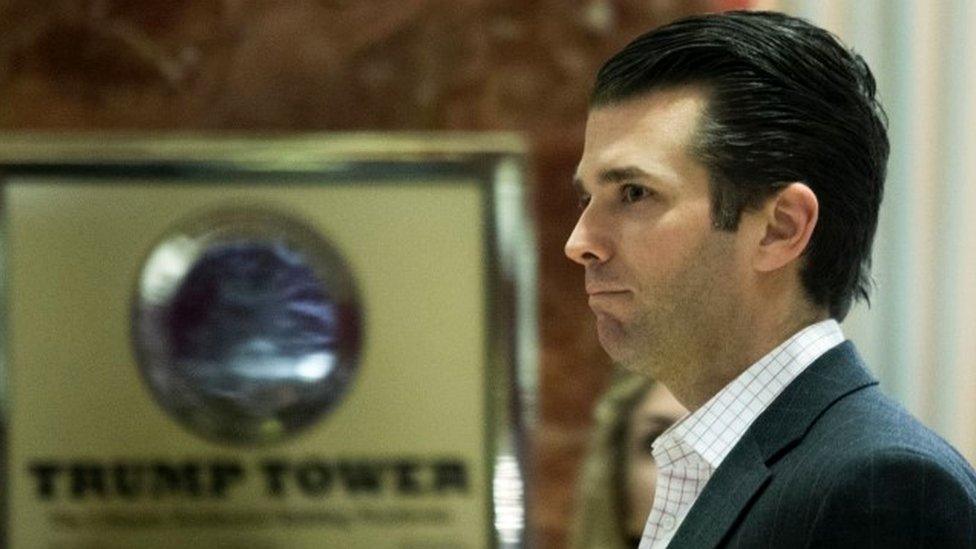Russia's Lavrov threatens US over seized diplomatic mansions
- Published
The Kremlin is urging Donald Trump to lift the sanctions, as Steve Rosenberg reports
Russia says it is "outrageous" that the US has not yet handed back two Russian intelligence compounds seized in the US under the Obama administration.
Foreign Minister Sergei Lavrov said he was "considering specific measures" in response, but did not elaborate.
Earlier, unnamed Russian officials said Moscow was ready to expel about 30 US diplomats and seize US state property.
In December the Obama administration expelled 35 Russian diplomats and shut down two intelligence compounds.
Ex-President Barack Obama acted against Russia after US intelligence sources had accused Russian state agents of hacking into Democratic Party computers to undermine Hillary Clinton's presidential campaign.
Mr Lavrov told Russian media it was "simply shameful for such a great country as the United States, a champion of international law, to leave the situation in such a state of suspended animation".
"Justice and international law must be restored," he said, accusing the US Congress of being "charged up with Russophobia".

Which compounds were seized?
The US seized a Russian diplomatic property on Maryland's Eastern Shore - a sprawling 45-acre (18.2-hectare) retreat. The facility, acquired during the Cold War, was used by Russian diplomats for recreation, such as tennis and swimming. But it also had sophisticated communications, and US officials said it doubled as a spying outpost
The other diplomatic property is a New York mansion at Glen Cove, Long Island. It has 49 rooms and is similarly surrounded by woods. Like the Maryland mansion, its location is ideal for eavesdropping on US communications, US officials say

A huge Russian diplomatic estate in Maryland was seized by the US government in December

Russian President Vladimir Putin raised the issue of the Obama sanctions with US President Donald Trump when they met in Hamburg on 7 July, the daily Izvestia reported.
The Trump team is under investigation over alleged Russian collusion during last year's presidential campaign. The Kremlin has denied interfering in the election.

Trump's Catch-22
Steve Rosenberg, BBC Moscow correspondent
If Donald Trump has ever read Joseph Heller's famous satirical novel, he'll recognise the situation as Catch-22.
If President Trump hands back the Russian diplomatic compounds seized by President Obama last year, he will cement his image of Kremlin stooge in the eyes of his opponents. At this point any concessions to Russia would be highly controversial, in light of current investigations in America into alleged links between Mr Trump's team and Moscow.
But if the Russian compounds are not returned, Moscow may well expel a number of US diplomats and seize some US diplomatic buildings. That could complicate what Mr Trump says he wants to achieve: better relations with Russia.
This is not the first time that reports have emerged of Russia planning counter-measures. The latest threat - via a foreign ministry source in a pro-Kremlin newspaper - may be designed to increase the pressure on Washington, ahead of US-Russia talks on the issue.

The Obama sanctions came on top of existing Western sanctions imposed because of Russia's role in the Ukraine conflict.
Mr Putin refrained from tit-for-tat retaliation - unlike in previous diplomatic spats. Mr Trump had been elected to succeed President Obama just weeks before.
Russia says President Trump presented "no plan to resolve the crisis" when the issue was raised in Hamburg last week.
An unnamed Russian diplomat told Izvestia that in retaliation Russia could seize a US government dacha (country villa) at Serebryany Bor, to the northwest of Moscow, and a US warehouse in the city itself.
However, the US ambassador's Spaso House residence and the Anglo-American School in St Petersburg would not be affected.
Russia would carry out the threat if no compromise was reached at a St Petersburg meeting later this month between Russian Deputy Foreign Minister Sergei Ryabkov and US Under Secretary of State Thomas Shannon, Izvestia reported.
- Published29 December 2016

- Published11 July 2017
